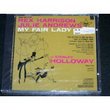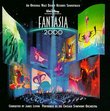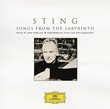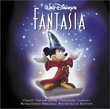| All Artists: King Crimson Title: Discipline Members Wishing: 12 Total Copies: 0 Label: Discipline Us Release Date: 11/22/2004 Genres: Alternative Rock, Pop, Rock, Classic Rock Styles: Indie & Lo-Fi, Progressive, Progressive Rock, Psychedelic Rock, Album-Oriented Rock (AOR) Number of Discs: 1 SwapaCD Credits: 1 UPC: 633367050823 |
Search - King Crimson :: Discipline
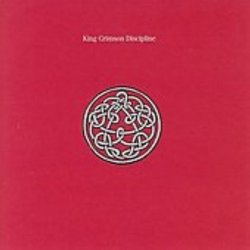 | King Crimson Discipline Genres: Alternative Rock, Pop, Rock, Classic Rock
|
Larger Image |
CD DetailsSimilarly Requested CDs
|
CD Reviews'80s band creates their own masterwork. Michael Stack | North Chelmsford, MA USA | 11/05/2005 (5 out of 5 stars) "Several years after the band broke up, Robert Fripp resurrected King Crimson, but in a way no one would have expected. Returning was drummer Bill Bruford, and joining was bassist/stickist/backing vocalist Tony Levin and one of the few who could stand next to Robert Fripp holding his chosen instrument and not look inept, guitarist/vocalist Adrian Belew. Originally a band called Discipline, Fripp realized this was King Crimson and renamed the band. Wrapped in a red sleeve with a Celtic knot on the cover, this album is in many ways as the cover implies-- intertwining and interlocking-- Fripp and Belew's guitars play complex lines that live with each other and don't stand without each other, supported by Levin's thunderous bass and melody vs. countermelody playing on the stick. Below all of this, Bruford is easily holding it all together. The album is one of the true greats of its era, and is certainly among the best Crimson has ever recorded. From the opener, "Elephant Talk", you know you're in for something different-- Levin's melody/countermelody intro overlayed with two intertwined guitars, elephant squeals on guitar, a half-spoken vocal, and two bizarre guitar solos. Five minutes later, you're overwhelmed, what's amazing is that its got a groove, its a great rhythm, its just plain amazing. The rest of the album pretty much follows suit in terms of being brilliant to the point of overwhelming while the environment and the mood changes-- interlocking guitars rule several of the songs (the breathtaking "Frame By Frame", with impassioned vocals and some of the fastest guitar licks you'll ever hear, the frantic "Thela Hun Ginjeet", and the title track-- an instrumental where you can really hear Fripp and Belew get into a groove). These are offset by a couple great ballads ("Matte Kudasai", with its beautiful slide guitar seagulls and an almost lazy feel to the vocal, "The Sheltering Sky", featuring a horn-toned Fripp guitar melody). In the middle of all of this is a piece that sounds like it would fit the last generation of Crimson better-- "Indiscipline". Building tension until the release-- an explosion of guitar pyrotechnics and a blazing solo that almost seems out of place here, but works. Something of note-- this is NOT a progressive rock album (in terms of the genre)-- in fact, its got more in common with new wave acts like the Talking Heads and the Police than it does with Yes and early Genesis. One of the reasons why I love Crimson so much is unlike many of those other progressive rock bands, they didn't stand still, they grew and changed and became something else over time. Bottom line though-- this is one of the greats, highly recommended." A New, Brilliant (And Controversial) Crimson Alan Caylow | USA | 04/02/2006 (5 out of 5 stars) "After the release of 1974's "Red," King Crimson guitarist/leader Robert Fripp declared to the press, "King Crimson is over. Forever and ever." But seven years later, Fripp changed his mind and resurrected the band. Hooking up again with Crimson drummer Bill Bruford, and with new recruits Adrian Belew on guitar and vocals and bassist Tony Levin, King Crimson came roaring back to life with 1981's "Discipline." But this was certainly not the same Crimson of yor. You still had Fripp and Bruford from the classic Crimson line-up, but with the addition of Belew's soaring voice & frenetic guitar, Levin's ominous basslines, and a more streamlined approach to the music---including some more melodic elements than usual from Crimson---the band's sound was practically re-written from scratch with "Discipline." And some fans didn't like it, dismissing this version of King Crimson as "The Adrian Belew Band." But, for the more open-minded Crimheads, "Discipline" was exciting and fresh, a glorious new direction for this classic prog-rock band. And I agree. Even with more melodies, the band are still very much in a prog mode on this album. They didn't go pop. It's just *different* prog music than what they did before. From the great, interlocking grooves & sonics of "Elephant Talk," to the wistful beauty of "Matte Kudasai," to the frantic musical AND lyrical attack of "Thela Hun Ginjeet," to the hypnotic sounds of the instrumental "The Sheltering Sky," this album is simply amazing, the musical chemistry between Fripp, Bruford, Belew and Levin outstanding. With "Discipline," King Crimson opened the second chapter of their impressive musical career with a daring, challenging, powerful work. This is easily one of the band's very best albums." Still genre defying GraceNoteX | Houston, TX United States | 08/17/2005 (5 out of 5 stars) ""Court of the Crimson King," "Lark's Tongue in Aspic" and "Starless and Bible Black" may define the "classic" King Crimson, but "Discipline" has to be high tide for Fripp's creativity, inspiration, musicianship and genius.
This disc only qualifies as prog-rock because, even after all of this time, there isn't a genre it comfortably fits in. Fripp had just completed groundbreaking collaborations with Eno and Bowie, as well as work with Peter Gabriel. Out of that experience he created a very personal distillation of the most exciting elements of African poly-rhythms, new wave esthetics, minimalism and Berlin electronica filtered through his own neo-classical approach, and the result of that was two absolute masterpieces (his solo album "Exposure" and the reinvented King Crimson's "Discipline"). "The Sheltering Sky" is a timeless gem. Part soundscape, part ambient piece, part improvisational instrumental, this piece creates a sound world I could stay inside for another 20 minutes without tiring of. "Discipline" combines Steve Reich style minimalism (in fact, this track reminds me of the best aspects of Reich's "Drumming" but is far more pleasurable listening) with rigid classical structure weaving in and out of a bed of African poly-rhythms. "Indiscipline" is more amusing when you know that the bizarrely cryptic lyrics are in fact a letter Belew's wife wrote to him describing a sculpture she completed while he was away recording. As great as this CD is, it has some weak spots. Belew's guitar on "Elephant Talk" sounds more novelty than clever with 30 years of perspective. Up against the rest of the tracks, "Frame by Frame" feels more like filler now. And the song's lyrics don't quite match the brilliant musicianship on "Matte Kudasai." If you want one album to represent King Crimson in your collection, choose one of the three "classic" albums. But if you want King Crimson at their most inventive, get this one. " |

 Track Listings (8) - Disc #1
Track Listings (8) - Disc #1